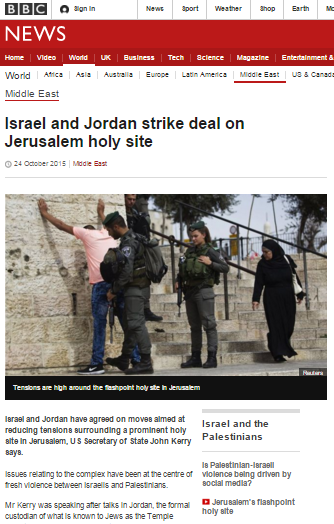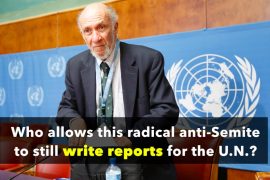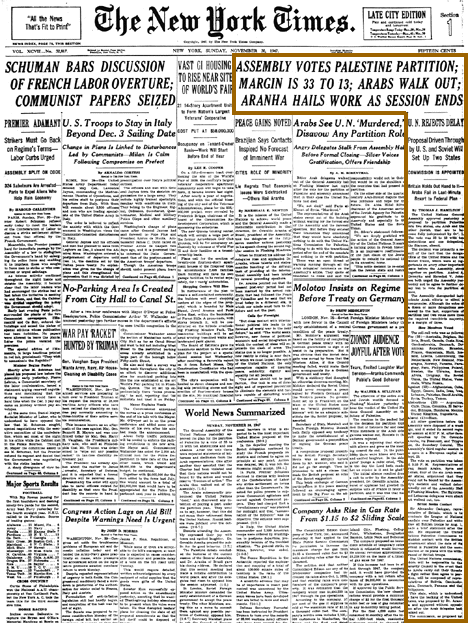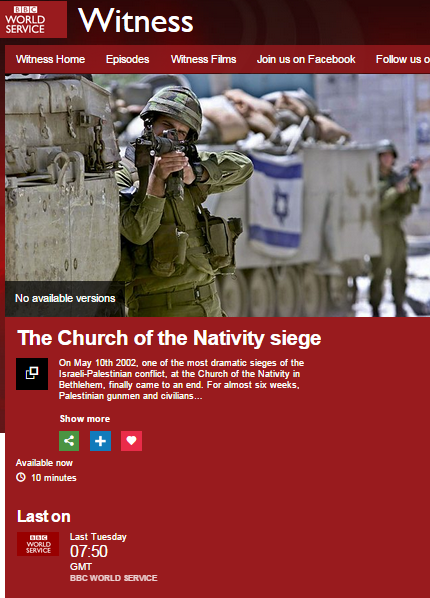“Plucky: Having or showing determined courage in the face of difficulties.”

The article promoted by the BBC’s Middle East bureau chief in that Tweet appeared on the BBC News website’s Middle East page on June 5th under the headline “Qatar cash and cows help buck Gulf boycott“. Written by the BBC Jerusalem bureau’s Yolande Knell after a visit to Doha, the report includes a video about a dairy farm in Qatar in which BBC audiences are told that: [emphasis added]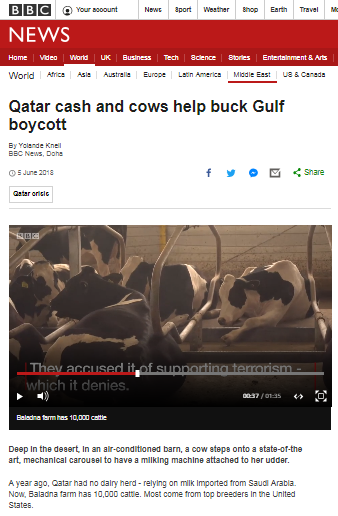
“The cows were shipped, and even flown into Qatar when it was cut off by its Arab neighbours. They accused it of supporting terrorism – which it denies.”
In the article itself readers find the following:
“On 5 June last year, Saudi Arabia, the United Arab Emirates, Bahrain and Egypt cut off all diplomatic, trade and transport links to Qatar.
They accused it of supporting terrorism, stirring up regional instability and seeking close ties with their arch-rival, Iran.
Qatar denied that and refused to comply with a long list of demands, including closing its Al Jazeera news network. […]
“The main thing that the blockading states are aiming for [is] a power consolidation in the region,” Qatar’s Foreign Minister, Sheikh Mohammed bin Abdulrahman al-Thani, tells me.
“They started to draw the picture of terrorist on anyone who is different from them.””
The exact same messaging is seen in the synopsis to a filmed report that also appeared on the BBC News website’s Middle East page on June 5th.
“Qatar’s Foreign Minister, Sheikh Mohammed bin Abdulrahman al-Thani says “they started to draw the picture of terrorist on anyone who is different from them.””
The same statement opens the filmed report itself.
So what information were BBC audiences given that would help them judge whether there is any truth in that repeatedly promoted claim, according to which accusations of support for terrorism are merely a smear because Qatar is “different”?”
Knell’s portrayal of the issue begins with a year-old story.
“Qatar blames the start of last year’s crisis on what it says was a cyber-attack on its state-run news agency, which published comments purportedly from the ruling emir.
He was quoted as expressing sympathy for Hezbollah militants in Lebanon and Hamas in Gaza, and claiming that Donald Trump might not last long as US president.
However, analysts say the roots of the disagreement go back much further.
“This was an issue that was kept bottled for 20 years but it just came out in the open a year ago,” says Ali Shihabi, the Saudi founder of the Washington-based, Arabia Foundation.
He refers to tapes that emerged after the fall of Libyan leader Colonel Muammar Gaddafi in 2011 which appeared to show the Qatari emir’s father plotting against Saudi royals when he was ruler.
Mr Shihabi says that Qatar reneged on agreements to stop payments to dissidents in other Arab countries and gave them a platform on Al Jazeera.”
Who those “dissidents” are and what they ‘dissented’ remains unclear in Knell’s report.
Significantly, Knell made no effort whatsoever to inform BBC audiences of Qatar’s record of negligence on terror financing. Neither did she bother to tell audiences about Qatar’s selective definitions of terrorism, its hosting of senior Hamas and Muslim Brotherhood figures or Qatari leaders’ ties to a terror financier.
As one Middle East analyst put it earlier this year:
“Qatar is on a charm offensive designed to portray itself as a victim of rivalries in which Saudi Arabia, the United Arab Emirates and their allies have isolated the emirate. […]
The problem with Qatar’s attempt to rebrand itself as the moderate state being victimized by Saudi Arabia is that Qatar has never come clean about its support for Hamas and terror financing. “Qatar, a longtime U.S. ally, has for many years openly financed Hamas, a group that continues to undermine regional stability,” U.S. Under Secretary for Terrorism and Financial Intelligence David Cohen said at the Center for a New American Security in March 2014. He said that fundraisers for Al-Qaida’s Syrian affiliate, then known as Nusra Front, had operated in Kuwait and Qatar.”
Yolande Knell’s superficial reporting clearly does nowhere near enough to enhance the ability of the BBC’s funding public to look beyond that charm offensive. Quite the opposite in fact: it provides back wind for Qatar’s rebranding campaign.
Related Articles:
Qatar’s expulsion of Hamas officials not newsworthy for the BBC
Superficial BBC Radio 4 reporting on Qatar funding of Hamas
Filling in the blanks in BBC reports on Hamas, Qatar and Iran
BBC media editor’s softball interview with fellow journalist sold audiences short

